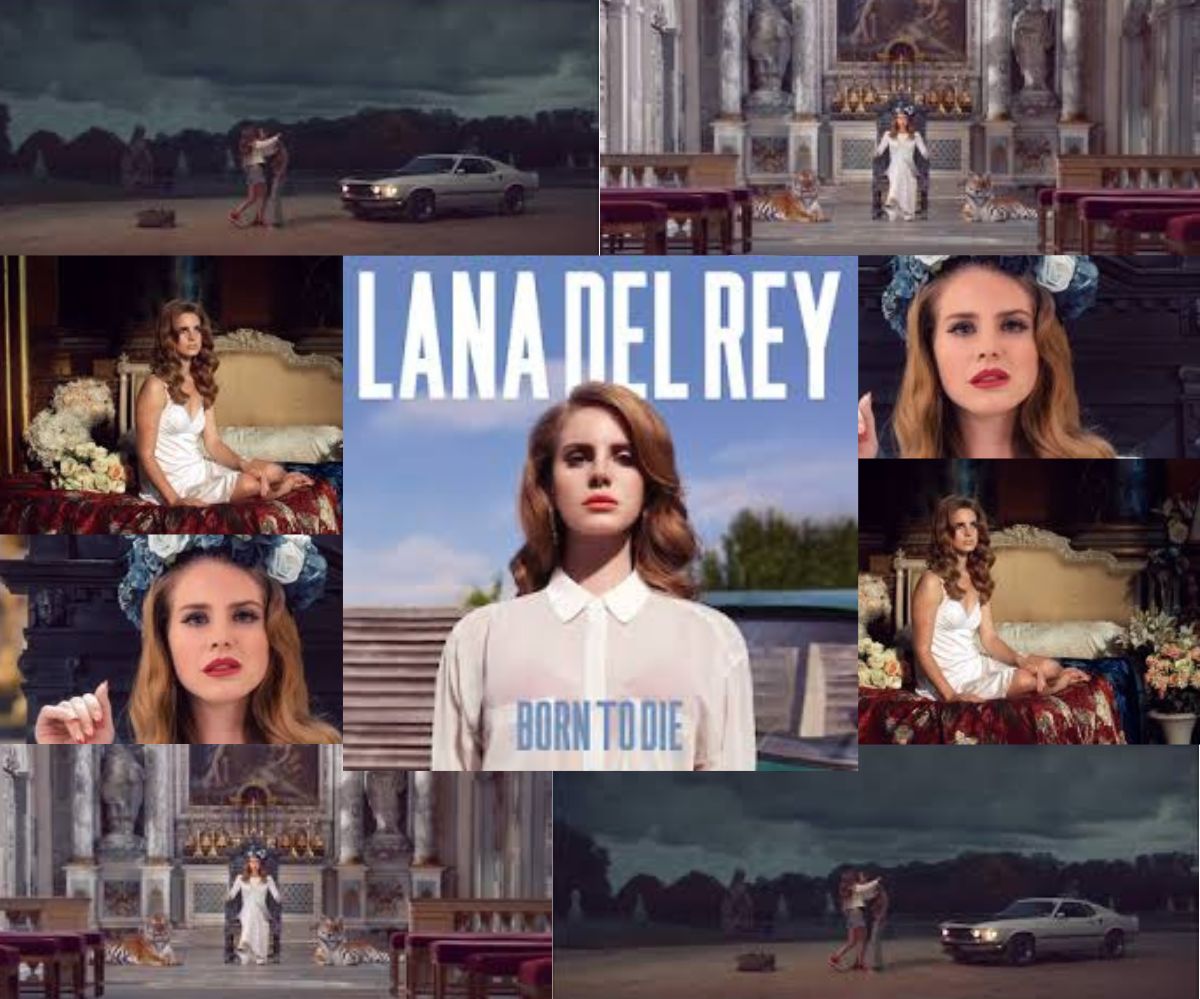After 13 years, Lana Del Rey’s Born to Die continues to define the singer’s Americana-pop persona.
On Jan. 27, 2012, Elizabeth Grant released her first hit record under her newest stage name, Lana Del Rey. Preceded by her short-lived album Lana Del Ray a.k.a. Lizzy Grant, which was quickly taken off iTunes after its 2010 release as her label at the time was unable to fund it, Born to Die was Grant’s first release as “Lana Del Rey” and brought an individualized sound to the pop sphere.
Despite contemporary fans pleading for official releases of Grant’s iconic “unreleased” tracks from the Lizzy Grant era, the album saw little success at the time. So, when the single “Video Games” from Born to Die hit overnight success when the self-made music video was posted online in 2011, Grant said it was “strange.”
“I’ve been putting my music online for so long that I didn’t expect ‘Video Games’ to get more attention than any other song. It’s strange that people would react to a five-minute ballad,” Grant told i-D Magazine.
“Video Games” began as one of the many video collages Grant created and uploaded online during that time. Video collaging had been a hobby of Grant’s since she was 17 years old, which entailed arranging vintage film footage together with classical music playing in the background, as she revealed in an interview with Myspace.
“Video Games” has a sound so iconic that even the first ten seconds are instantly recognizable. With church bells ringing out and the soft plucking of harps floating through the background, this track came to define Grant’s romantic sound.
The track is deeply intimate, with Grant beautifully pleading that everything she does is for her lover, telling him that “heaven is a place on earth with you.”
“Video Games” serves as an ode to young love. Throughout the track, Grant reflects on when her naivety was blissful, when watching her lover “pull up in [his] fast car,” “open up a beer […] and play a video game” was all she needed to feel content.
Grant explained that “Video Games” is a retrospective look at a past relationship, made up entirely of “memories of the best of the past.”
“I think when I wrote that song, I was reflecting on the sweetness of it, but also the fact that there was something else I was longing for,” said Grant.
The love song’s peculiar title and theme comes from Grant’s memories of watching her boyfriend at the time play World of Warcraft. She mused in an interview with MTV that World of Warcraft became her most “unfavourite” video game because it “consumed” every man in her life.
“Video Games” is undoubtably a standout track on the album and its popularity is for good reason. As a whole, Born to Die similarly looks back on the highs and lows of young, fleeting romance.
The title track “Born to Die” mirrors “Video Games” both in its sound and immediate recognizability as a part of Grant’s discography.
Opening with powerful violins, “Born to Die” explores the feelings of immortality that come with being young. The song is uniquely moving and cathartic, as Grant declares that having fun and feeling emotions to their extremes are integral to one’s youth.
Although much of the album is incredibly deep and emotional, tracks like “Diet Mountain Dew,” “National Anthem” and “Summertime Sadness” are airier cuts that fuel Grant’s old Americana aesthetic, employing images of heart-shaped sunglasses, the Hamptons and night driving on the coast.
However, darker tracks like “Dark Paradise” and “Carmen” reflect her earlier, unofficially released Lizzy Grant-era sound. Both tracks deal with the consequences of emotional blows, with “Dark Paradise” telling a story of the desperation and “haunting” that comes with lost love and “Carmen” warning against the consequences of using substances as an escape from emotion.
Born to Die is an incredibly cohesive album. Each track complements the next and shows a well-rounded view of the different emotions that come alongside the throes of young love.
Mixing images of old Hollywood glamour with gritty portraits of youth, recklessness and romance, Grant clearly brought her unique aesthetic visions to the pop sphere. By taking a theme as simple as lost love and tailoring it entirely to her own experiences, Grant created an unmatched sound that continues to define the pop genre.

